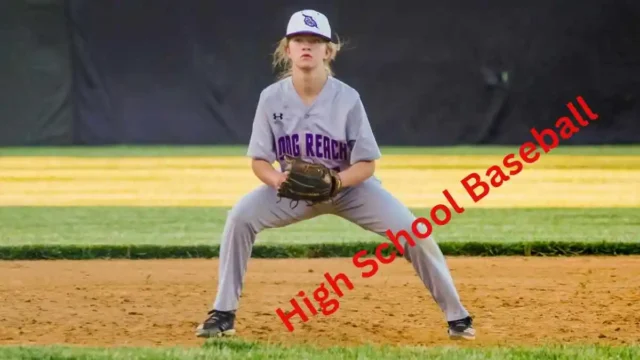Intro to Pool Play in Baseball: Unlock the Secrets
Why You Should Learn About Pool Play in Baseball
Hey there, fans of America’s pastime! If you’re chomping at the bit to know more about “what is pool play in baseball?”, you’ve hit a home run by finding this guide. Pool play baseball isn’t just any regular game; it’s a unique format in baseball tournaments. It’s designed to give each team a fair chance to strut their stuff. In other words, even if you lose one game, you’re not out of the running. Mastering the ins and outs of pool play can be a game-changer for any team aiming for the trophy.

The Importance of Mastering Pool Play in Baseball
Knowing how to navigate baseball pool play can set the tone for your entire pool play tournament experience. Think about it; success here can really pump up the team’s spirits and pave the way for a strong showing in the elimination rounds. On the flip side, falter in pool play brackets, and it could be a tough road ahead.
What This Guide Offers
Ready to elevate your understanding of pool play in baseball? Great! This guide is packed to the gills with everything you need to know. We’ll explore the basic pool play rules that govern pool play, delve into effective strategies, and even share some insider tips from baseball pros. By the time you’re done reading, you’ll be armed with actionable insights to help your team succeed in pool play. So stick around; you won’t want to miss this!
Understanding Pool Play in Baseball: The Basics and Beyond
Defining Pool Play in Baseball: What It Is and How It Works
If you’re new to the concept, you may be wondering, “What exactly is pool play in baseball?” or “How does wbc pool play work?” Well, let’s clear the air. Pool play is a specific format in baseball tournaments that groups teams into separate ‘pools.’ Picture it like a mini-tournament within the larger championship event. Each team gets the opportunity to play against every other team in its pool. The beauty of pool play in baseball lies in its inclusivity—it ensures that all participating teams get multiple games, unlike a sudden-death or single-elimination setup.
The Unique Benefits of Pool Play in Baseball
One of the main reasons why pool play in baseball is such a hit among teams and fans alike is the multitude of chances it offers. Unlike in a single-elimination tournament, where one loss can send you packing, pool baseball game lets your team bounce back. You’ll compete against multiple teams within your pool, and how you perform across these games will determine whether you advance to the knockout stages. In essence, pool play in baseball provides a more forgiving and inclusive format that allows for a better overall assessment of each team’s capabilities.
How Pool Play in Baseball Differs from Single-Elimination and Other Formats
Let’s dive a little deeper into why pool play in baseball stands out from other types of tournament formats. In a single-elimination tournament, one bad game can end your championship dreams—talk about pressure! In pool play, however, the stress is a bit less intense. You have the room to rebound from a loss because you’re not judged solely on one game’s outcome. Instead, your overall performance in all your baseball pool games will decide your fate. This gives teams a fairer shot at showing their true skills and adds a layer of strategy that makes pool play in baseball a fan favorite.
Unpacking the Importance of Pool Play in Baseball
The Crucial Role of Pool Play in Baseball Tournaments
If you’re participating in a baseball tournament, the significance of pool play can’t be overstated. It serves as the opening act for the rest of the tournament, setting the stage and tone for what’s to come. A strong performance during pool play in baseball not only ensures your team moves on to the next phase but can also supercharge your team’s morale. Imagine starting off on the right foot, beating several teams, and riding that wave of success into the later rounds. That’s the power and importance of doing well in pool play in baseball.
The Strategic Implications of Pool Play in Baseball
The multifaceted nature of pool play in baseball really comes into its own when we talk about team strategy. You’re not just preparing for a single game; you’re preparing for multiple matchups within your pool. So, the strategy has to be long-term. Coaches can’t afford to throw everything into one game and ignore the rest. This is where intricate aspects like player rotation, stamina management, and pitch selection become pivotal. In pool play, you must balance your resources and strategies across several games, making it an exciting challenge for any baseball team.
High Stakes in Pool Play: What’s On the Line
Now, let’s not sugarcoat it. Even though pool play in baseball gives teams more than one opportunity to prove their mettle, the stakes remain sky-high. A series of poor performances can wreak havoc on team morale and potentially end your tournament journey before you even get to the knockout stages. Hence, understanding the nuances, risks, and rewards of pool play in baseball is absolutely critical for players and coaches alike.
By grasping the significant role, the strategic implications, and the stakes involved in pool play in baseball, you’re taking crucial steps towards ensuring your team’s success. Whether you’re a player aiming for the big leagues or a fan who wants to understand the game better, these insights are invaluable.
The Nuts and Bolts of Pool Play in Baseball: Rules and Regulations

Team Count in Pool Play: How Many Teams Make the Cut?
Let’s kick things off with the basics of pool play in baseball, starting with the number of teams you can expect in a single pool. Typically, you’ll find 4 to 6 teams duking it out. However, this number can fluctuate depending on the size and structure of the tournament. This multiple-team format ensures that every team gets to face different kinds of challenges and brings a more dynamic flavor to the tournament.
Scoring the Win: How Pool Play Matches in Baseball are Decided
Now, how does one actually win in pool play? Generally speaking, a win will earn your team two points, while a tie will give you one point, and a loss will leave you empty-handed. In pool play in baseball, the key to advancement is accumulating the most points across all the matches within your pool. The teams with the most points move on to the more cutthroat elimination stages. It’s a straightforward system that allows for easy tracking and adds an extra layer of excitement as teams vie for those crucial points.
Breaking the Tie: Other Metrics for Determining Winners in Pool Play
While the point system is the go-to method for deciding which teams advance, there are also other ways to break a tie. Some tournaments might rely on run difference or head-to-head results to settle the score between teams with equal points. These additional methods ensure that the teams moving on to the next stages of the tournament are truly the best of the best in pool play in baseball.
Unlocking the Winning Strategies for Pool Play in Baseball
The Power of Teamwork in Pool Play in Baseball
Teamwork is the cornerstone of any successful baseball team, but it’s particularly vital in pool play. In this setting, understanding each player’s role and how they contribute to the team’s success is crucial. When each player knows their role, you operate like a well-oiled machine, enhancing your chances of victory in pool play in baseball.
Drills to Level Up Team Dynamics in Pool Play
Nothing beats hands-on experience. Engage in drills that mimic real-game scenarios, like having bases loaded or managing tie games. These drills teach players how to respond effectively under pressure and develop a team-based approach. Remember, practice makes perfect, especially in the context of pool play in baseball.
The Art of Player Rotation: Timing and Impact
Rotating players is more of an art than a science, and it becomes extremely important in pool play. Because you’re playing multiple games in a short period, it’s vital to manage fatigue. Keep an eye on pitch counts and don’t hesitate to make fielder swaps to keep everyone fresh. Your rotation strategy can be the game-changer in pool play in baseball.
How Rotation Influences Game Outcomes in Pool Play
A well-timed rotation ensures that your key players are at their best when it counts the most. It also provides less-experienced players with valuable on-field time, preparing them for high-stakes situations down the road in pool play in baseball.
Mental Agility: Staying Focused During Pool Play in Baseball
Concentration is key. Simple techniques like deep breathing can work wonders for keeping your mind in the game. The goal is to stay in the present, focusing on the next play rather than dwelling on previous mistakes.
Tackling High-Pressure Moments in Pool Play
The best way to handle pressure is to simulate it during practice. The more you practice high-stakes situations, the better prepared you’ll be when you face them in actual pool play in baseball games.
Essential Skills: The Building Blocks of Success in Pool Play
Excellence in pool play in baseball isn’t just about being good at one or two things; it’s about being well-rounded. From batting and pitching to fielding, every skill is pivotal. Don’t underestimate elements like base running and bunting; they can tip the scales in closely fought games.
Skill-Enhancing Drills for Pool Play in Baseball
To be the best, you’ve got to practice like the best. Run drills focusing on quick decision-making under pressure. Use pitching machines to help batters adapt to different types of pitches and work on fast throws and pick-off plays for fielders.
Steering Clear of Common Blunders in Pool Play in Baseball
Typical Errors Teams Make in Pool Play in Baseball
Whether you’re new to the game or a seasoned pro, mistakes in pool play in baseball can happen to the best of us. Common pitfalls range from lack of communication between team members to ineffective player rotation. Knowing what these are can arm you with the knowledge to sidestep them, giving you an edge in pool play.
Communication Breakdowns: A Big No-No in Pool Play in Baseball
Among the most common mistakes teams make in pool play in baseball is poor communication. This can manifest in various ways, like misreading signals, not calling out plays, or misunderstanding coaching instructions. These errors can be costly, leading to missed opportunities and, ultimately, defeats. Communication is the glue that holds a team together; when it falls apart, the team’s performance is likely to follow suit.
Ineffective Player Rotation: A Slippery Slope in Pool Play
Another area where teams often falter is in their rotation strategy. Either they exhaust their star players by not rotating them or fail to give bench players enough field time. This imbalance can lead to fatigue and a decrease in performance levels, especially in the high-stress environment of pool play in baseball.
How to Tackle These Common Mistakes in Pool Play
The first step in resolving these issues is recognizing that communication is crucial. Whether it’s between players on the field or between the coaching staff and players, clear and consistent communication can solve many problems before they start. Always have a backup plan in case your initial strategy doesn’t pan out. Flexibility can be your best friend in pool play in baseball, allowing you to adapt when things don’t go as planned.
Quick Guide: Pro Tips to Ace Pool Play in Baseball
Fine-Tune Your Game with Expert Advice
If you want to shine in pool play in baseball, then you should definitely pick up some tips from seasoned pros. They’ll tell you that the devil is in the details. Study your opponents, recognize when it’s time to steal a base or go for a home run. Small nuances often tip the balance in pool play, so pay close attention to those little but crucial things. A win or a loss can hinge on these finer points.
The Art of Taking Calculated Risks
Taking risks in pool play in baseball is not about being reckless; it’s about being savvy. Know when it’s time to go for that extra base or when to initiate a double play. It’s the calculated risks that make all the difference. Before making a move, weigh the situation carefully. Your familiarity with the game and your opponents will help you make the right decisions at crucial moments.
Gear Matters: Opt for Quality Equipment and Consistent Practice
Your equipment and how you train are crucial in pool play in baseball. Pros invest in the best bats, gloves, and cleats for a reason: they enhance performance. Likewise, practice routines are vital. Stick to a consistent training schedule and incorporate a variety of drills to up your game.
Conclusion
So there you have it, folks—a complete guide to mastering the art of pool play in baseball. From understanding the basic rules to fine-tuning your strategies, we’ve covered it all. Remember, success in pool play sets you up for a solid run in the knockout stages. So take these tips to heart, and you’ll be on your way to becoming a pool play pro in no time!
FAQs
- What is the Most Common Format for Pool Play in Baseball? The most common format involves 4 to 6 teams in a pool, each playing against the other teams once.
- How Do You Prepare a Team for Pool Play? Preparation involves both physical training and mental readiness. Drill various game situations and keep the lines of communication open.
- What Should a Coach Focus on During Pool Play? Strategy, player rotation, and morale are key focus areas for any coach.
- Is There a Way to Predict the Outcomes of Pool Play Matches? While there’s no surefire way to predict outcomes, studying past performances and current form can give you an edge.
- How Do Tiebreakers Work in Pool Play? Tiebreakers can involve point differences, head-to-head records, or even coin tosses in some cases.


